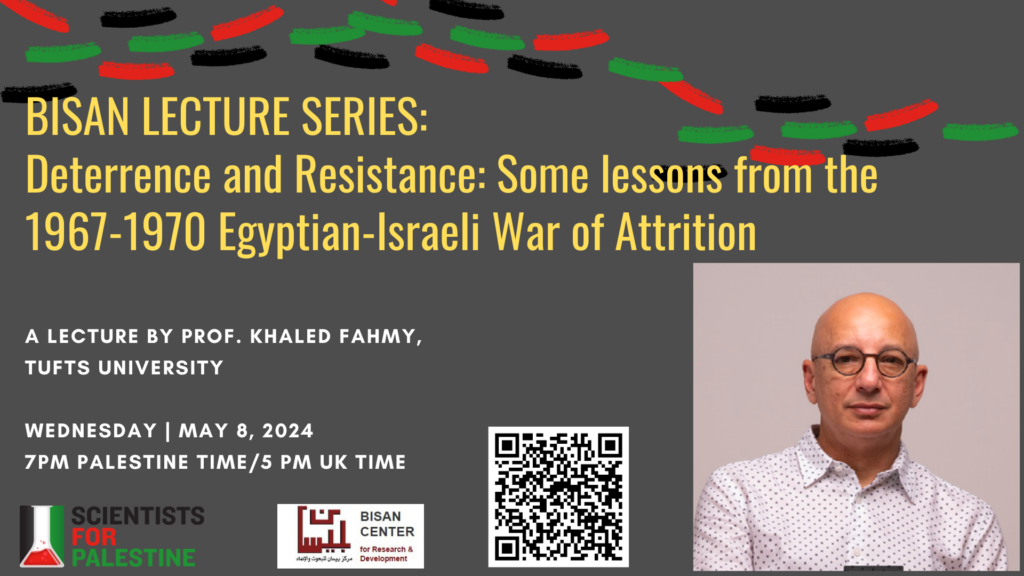
Wednesday, May 8, 2024, 7 pm Palestine time
Prof. Khaled Fahmy (Tufts University)
Title: Deterrence and Resistance: Some lessons from the 1967-1970 Egyptian-Israeli War of Attrition
Abstract: In June 1967, Israel inflicted a devastating, comprehensive military defeat on the Egyptian army. After only three days of fighting, the Egyptian Armed Forces lost 90% of its aircraft, 85% of its tanks, artillery, and APCs, in addition to between 10,000 to 15,000 men killed and another 10,000 POWs and wounded. By the war’s end, the entire Sinai Peninsula, 6% of the total land area of the country, was under Israeli control.
Entrenched in what it believed was an impregnable position, Israel felt that Egypt had no option but to surrender and engage in peace talks on its own terms. Moshe Dayan, the defense minister, famously waited for a phone call from Gamal Abdel Nasser, the Egyptian president, to accept the terms of capitulations.
However, Nasser never made that phone call. Instead, in November 1967, six months after his army’s defeat, he announced that “What was taken by force will not be retrieved except by force”. Thus began a three-year long war, the longest of the Arab-Israeli wars, the War of Attrition, that lasted from the fall of 1967 to August 1970.
This talk describes how the Egyptians managed to rebuild their shattered army in record time. More specifically, it follows how the Egyptian high command, while realizing that they could not liberate Sinai in one decisive battle, succeeded in neutralizing Israel’s air superiority. The Egyptians did this by deploying a complex network of surface-to-air missile batteries (SAM) on the western banks of the Suez Canal. It was this successful deployment of SAM batteries that enabled the Egyptian army to cross the Canal and destroy the Bar-Lev Line on October 6, 1973.
Short Biography: Khaled Fahmy is Edward Keller professor of North Africa and the Middle east at Tufts University. His research area is modern Egyptian history, and he has published widely on the history of the Egyptian army in the nineteenth century, the history of medicine and public health, the police, and city planning. His most recent research project is the June 1967 war, the War of Attrition and the October 1973 War.
